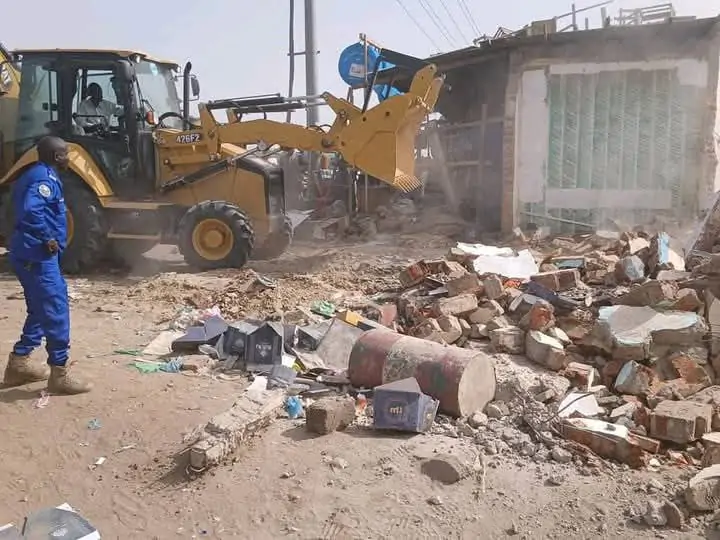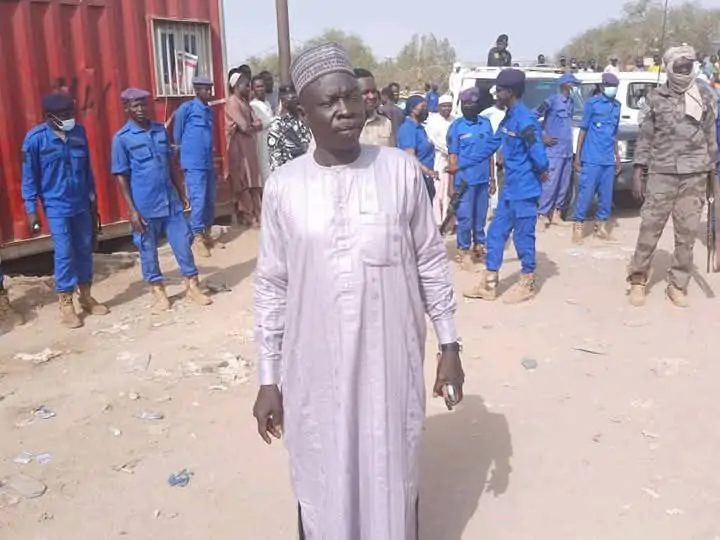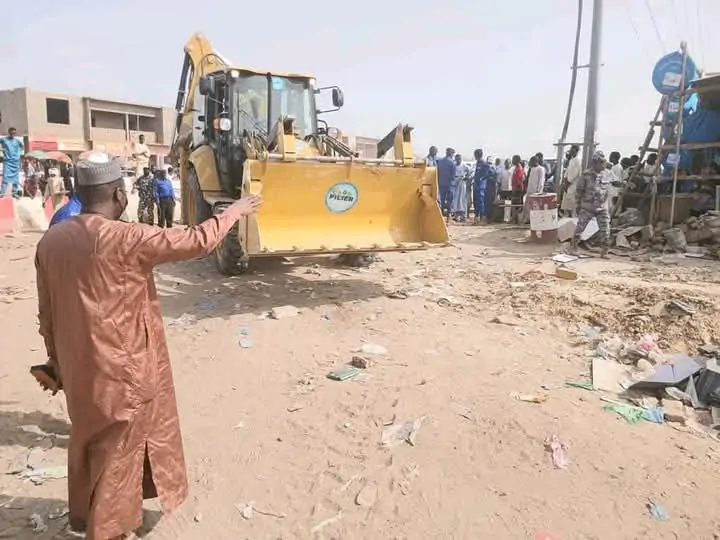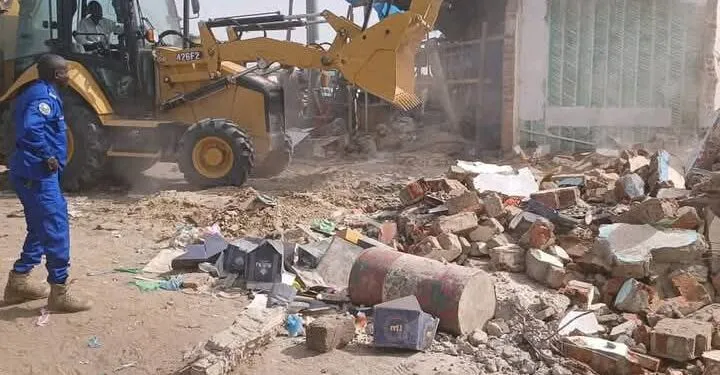On Monday, Mahamat Khalil Abdelkerim, the mayor of N’Djamena, oversaw the demolition of illegal structures in the Goudji Charafa neighbourhood of the 10th arrondissement. Backed by law enforcement, the operation is part of a broader effort by the city authorities to restore public order, improve security, and advance urban planning in Chad’s capital.
A Push for Urban Order and Safety
The cleared structures, deemed unauthorised and anarchic, had long raised concerns about public safety. According to the municipality, their removal is a necessary step toward reducing the risk of accidents and enhancing the overall security of public spaces. City officials also emphasised that this operation paves the way for the planned redevelopment of the neighbourhood, in alignment with the capital’s urban development goals.
“The law must be respected,” said an official from the mayor’s office, underscoring that occupation of public land without authorisation undermines not only city planning but also public interest.



Immediate Social Repercussions
However, the operation has reignited a long-standing debate in Chad over how to best balance urban enforcement with social responsibility. Although authorities granted a grace period for voluntary departure, many families and street vendors now face homelessness or loss of their primary source of income.
Voices from the Ground
Local residents expressed a mix of resignation and frustration. “We knew this day would come, but that doesn’t make it any easier,” said Amina, a mother of four who ran a small food stall in the area of Goudji Charafa. Others criticised the approach as too heavy-handed, warning that the use of force could deepen mistrust between communities and authorities.
Civil society groups urge better support systems for displaced populations, asserting that enforcing urban regulations is legitimate but must include adequate social safeguards.



